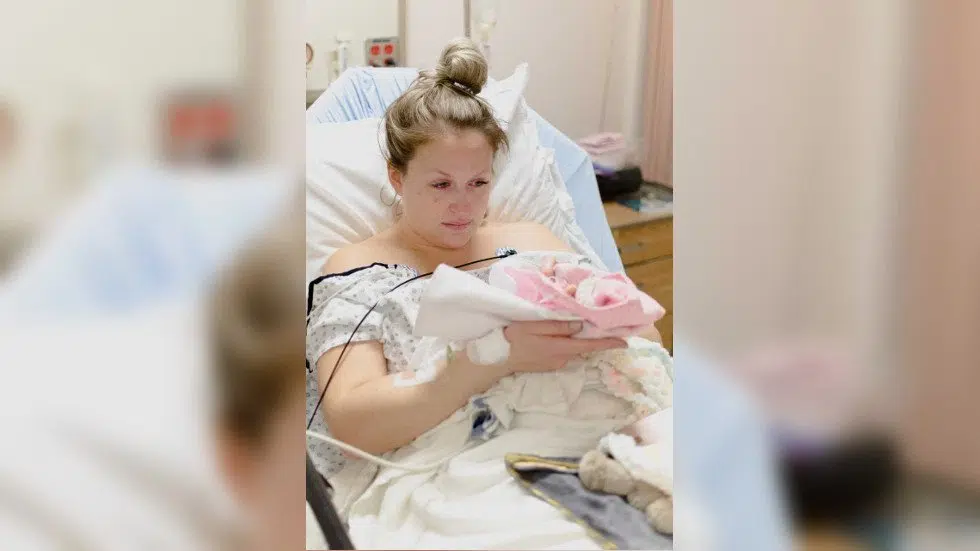
Better care needed for mothers suffering loss, Sask. mother says
A Warman woman shared her story of personal loss in an effort to get the Saskatchewan Health Authority to address what she calls severe understaffing in hospitals.
Amy Killick said her daughter was stillborn in 2017. Killick and her husband prepared for the birth since the 12-week stage when their baby was diagnosed with Trisomy 18, a condition caused by an error in cell division. Killick’s said her doctor told her the baby would likely die before being born and if born would breathe for a few minutes, an hour at most. Killick said the news was devastating and she was forced to make the toughest decision in her life.
“Induce your baby and say goodbye to him or her now, wait to see if the baby dies during pregnancy, or watch your baby die after being born,” she said.
Killick said she made the decision to continue carrying the baby and was induced at the 22-week stage at Royal University Hospital in Saskatoon. Killick’s water broke the next day.


